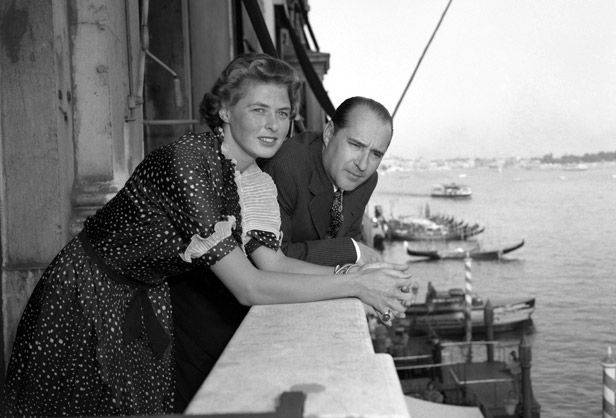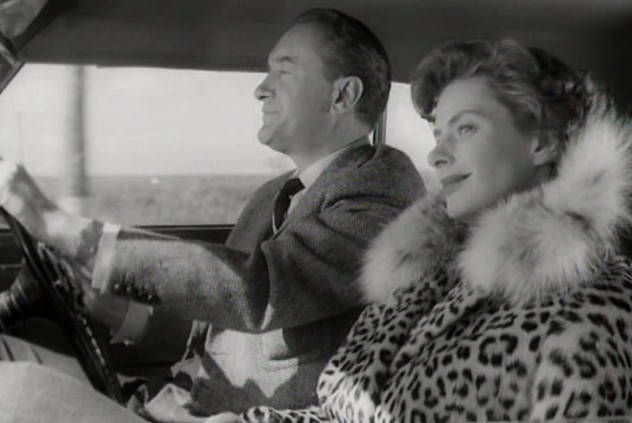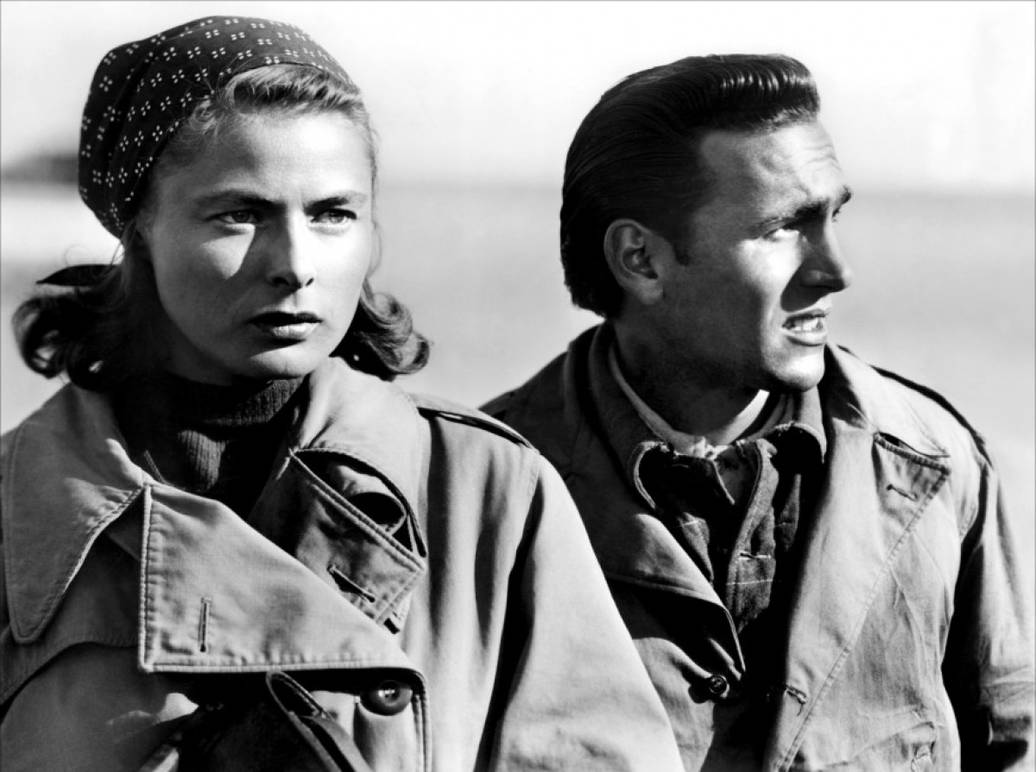Bergman-Rossellini, Their Films Together in a Box Set
“In the late 1940s, the incandescent Hollywood star Ingrid Bergman found herself so stirred by the revolutionary neorealist films of Roberto Rossellini that she sent the director a letter, introducing herself and offering her talents.
The resulting collaboration produced a series of films that are works of both sociopolitical concern and metaphysical melodrama, each starring Bergman as a woman experiencing physical dislocation and psychic torment in postwar Italy. It also famously led to a scandalous affair and eventual marriage between filmmaker and star, and the focus on their personal lives in the press unfortunately overshadowed the extraordinary films they made together. Stromboli, Europe ’51, and Journey to Italy are intensely moving portraits that reveal the director at his most emotional and the glamorous actress at her most anguished, and that capture them and the world around them in transition.” (www.criterion.com)
These three films are contained in The Criterion Collection's new release Rossellini/Bergman box set, available both on DVD and Blu-Ray and its publication was announced at Casa Italiana Zerilli Marimo' during a special presentation moderated by David Forgacs, NYU. Panelists included Antonio Monda, NYU, Kim Hendrickson, The Criterion Collection, and Ingrid Rossellini. Unfortunately her twin sister, Isabella Rossellini, could not participate as scheduled because of health reasons. The discussion was followed by the screening of Journey to Italy.
“This film caused me a lot of pain,” Rossellini is shown saying in a short video before the beginning of the film. In it he explained how the Italian critics and media did not understand or appreciate it while he received a letter from Truffaut at the Cahiers du Cinema praising his work, and that was a relief. Bergman and Rossellini made five features (the other two are Fear and Giovanna d’Arco al rogo) and a short, none of which succeeded with audiences or critics.
“The rejection their work together got from the media really took a toll on them,” Ingrid Rossellini said about her parents and their collaborations, “although it did not show. Mamma left Hollywood behind, but she did not want just fame she wanted to be part of something meaningful.”
And the films in this box set, are indeed meaningful. First they show how a revolutionary film director like Rossellini continued to move forward and innovate cinema. “These films were too new and revolutionary,” Monda confirmed, “Rossellini realized the end of Neo realism had arrived and he moved away from it, telling stories of every day people and how tragedy enters their lives. But the combination of Hollywood fame and European auteur resulted in unpredictable films that couldn't be classified as neorealism or melodrama, though they contained elements of both.
Rossellini was really close to these stories, he produced, directed and co-wrote them. Although it seems that there was not really a script and a lot was improvised. Apparently during the shooting of Journey to Italy, actor George Sanders was often in tears as he did not know what to do. Ingrid Bergman would also get nervous at moments but she would look up, see Rossellini behind the camera and get direction from him. Maybe a lot of it was not written on paper but it was all mapped out in his mind.
Stromboli (1950) - The first collaboration between Roberto Rossellini and Ingrid Bergman is a devastating portrait of a woman’s existential crisis, set against the beautiful and forbidding backdrop of a volcanic island.
Europe '51 (1952) - Ingrid Bergman plays a wealthy, self-absorbed Rome socialite racked by guilt over the shocking death of her young son. As a way of dealing with her grief and finding meaning in her life, she decides to devote her time and money to the city’s poor and sick.
Journey to Italy (1954) - Among the most influential films of the postwar era, Roberto Rossellini’s Journey to Italy charts the declining marriage of a couple from England (Ingrid Bergman and George Sanders) on a trip in the countryside near Naples.








































i-Italy
Facebook
Google+
This work may not be reproduced, in whole or in part, without prior written permission.
Questo lavoro non può essere riprodotto, in tutto o in parte, senza permesso scritto.